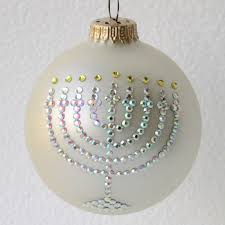I think she was the assistant principal.
Mrs. Stein’s powdery perfume always settled in my hair for the day so that when I got home from school I could still smell her. She wore gold jewelry, maybe a chain or two. She had fancy hair, coiffed into stepped, rolling hills. She smiled at me a lot. She took me out of class periodically just to hang out with her. I was eight. In her office, where the venetian blinds were always turned halfway closed to keep the room dim, I sat in a grownup upholstered chair, and she played with my hair, sometimes sliding bobby pins in to pin it back. She talked to me about her nieces, whose pictures were on her desk. One girl was blonde, and her name was Claudia, too, and the other, whose name was something else, something with a J, looked so much like me that now I begin to wonder if the woman didn’t have a picture of me on her desk. She spoke to me about a surgery I could have to have my ears tucked back. I couldn’t understand why she thought I needed that—I had tiny ears and they did not stick out, but she was always playing with them, and pushing my hair behind them. I don’t remember anything else about this except feelings—discomfort, fear, a small pleasure at my “chosen” status, the wrongness of her actions, wanting to go back to class, not wanting there to be yet another thing that set me apart from my classmates. I don’t know if more happened that I have chosen to forget.
In the classroom, things were not much better, but they looked different. For most of my elementary school career, I was a minority—always because of my religious upbringing, and most years because of my skin color. Except for Jeffrey—he was white, too. Any time the teacher left the room, Jeffrey got up from his place to come touch me. Eventually, he was chasing me around the room, trying to kiss me, grab my crotch, my behind, while the other kids laughed. I told my mother, and she went into school, guns blazing. My crazy teacher tied Jeffrey to his chair. It didn’t work, though.
In those years, the 1970s, the apartment building where we lived was a red brick block with a column of balconies on each side, near the entrance to FDR Drive at the start of what is called Spanish Harlem. Families with children lived there, and there were always kids playing and yelling and getting their bikes stolen outside. Med students lived there, too. Mount Sinai hospital wasn’t far away, but even closer was Metropolitan, where gun shot victims and drug addicts bled or screamed their way into the ER. My mother told me that when I went in for stitches, the girl next to me had some bad acid or something and had cut up the length of her arms with a razor. It took a while before anyone thought to pull the curtain between us.
There was a playground and a basketball court across the street; the Stanley Isaacs housing project was just a block away. My friends and I always played outside, and a lot of us also went after school to Mrs. L for babysitting. For a little while, there was a boy there who was unusually small for his age. He loved to get me alone in Mrs. L’s bedroom (he hid behind curtains and then popped out at me), so he could touch me. He grabbed at my crotch, mostly. Eventually Mrs. L caught him, and he didn’t come to babysitting anymore. He was so young; I wonder what was going on in his home.
We played everything outside—tag; red light, green light; double Dutch; Matchbox cars; Simon says. One day we were playing catch with a ball or a Frisbee, and it landed in the gutter, so I went to get it. A man in a white car pulled up near me just as I stood, and he started asking me for directions. He had a big, 1970s afro, the weight of all that hair forcing it to droop slightly on both sides. He asked me which way was east, which way was west, that kind of stuff. I thought he was pretty lost or pretty stupid. I was answering all his questions, feeling knowledgeable, but then I noticed his jeans were open, and he was moving his hand up and down on the first grown-up, dark-skinned penis I’d ever seen. I backed away from the car quick. I was six or seven years old.
* * *
The tiny private school I attended in 1981 was British, despite its New York location. The four-floor brick building housed small classrooms that hold these memories. There were coats and scarves on the shelf above me, thrown there willy-nilly so that wooly sleeves and tassels of yarn and silky linings hung down in my face, mussing my hair, adding to the sense of chaos, preventing me from keeping an eye on my assailants. This time there were three boys—Daryl, who I kind of liked, and two others I can’t remember.
Their hands were all over me, moving quickly, trying to grab anything that felt female. There were brown hands inside my school blazer on my sore new breasts; pale, freckled hands up my pleated gray skirt so that my behind felt as if something was crawling on it and it was now in need of a wash, another hand pulling a bit at my underwear. I was thirteen years old and such a jumbled mass of hormones and emotions that I was both aroused and terrified, laughing and screaming stop, wanting the boys to like me and afraid of what they were doing.
When I look at pictures of myself then, I was a nice-looking kid, awkward perhaps, but not unusually so. I was pretty. But, oh, that’s not how I felt! I had long, frizzy brown hair and glasses, the worst glasses. I was in that part of puberty where everything is oily and sweaty and flaky, a permanent zit on my nose under my glasses, protected by a small round Band-Aid. Some days I thought I had a “pretty face” and sometimes I was hideous, but I was always overweight. Despite being quite slim, even skinny, I was on self-inflicted diets all the time. I wanted desperately to feel good about myself.
Before Chemistry class, we waited in the small fourth-floor hallway for the teacher to arrive; she was often a minute or two late because it took her a while to propel her generous proportions up the stairs. Across from the chem lab there was a classroom that was always unlocked and empty at the time. Whenever we waited there for Mrs. Field, a girl was selected. I don’t know if the boys discussed it ahead of time or if it was a spur of the moment thing. They shoved their prey into the empty room and there she was thoroughly “felt up” while the rest of the class waited calmly for the teacher. If chemistry class did not begin, maybe more would have happened.
It was not until I was well into adulthood that I recognized this for what it was—sexual assault. None of us would have ever thought of reporting it or complaining, viewing ourselves as complicit in it, maybe, or not even fully understanding how wrong it was. I remember feeling as though I were popular. I saw that classroom more than once, and sometimes there were as many as five of my male classmates. I had no choice, as I see it now, overpowered by them and their number. But I did giggle. Yes, I did.
* * *
It’s hot in the subway car, and someone has opened the little window that slants inward so we can enjoy the garbage- and urine-soaked breeze from the tunnel. The train’s clack-clack-clack-squeal is so loud I can’t think, and I am thrown forward, gripping the greasy metal “strap” as hard as I can so I don’t land in the lap of the woman in front of me. My left shoulder, weighed down by my backpack, is recovering from the jolt when I notice an unwelcome caress: a hand sliding up my thigh and slowly across my behind. In high school I rode the subway to and from school (go, Peglegs!), and I was assaulted on the train as reliably as my teachers gave homework—just about every day. There was no avoiding the men, because there was no type; they were Wall Street guys in pinstripe suits and wingtips, faces red from the morning’s shave; bike messengers of every race in ripped baggy shorts over their long johns; maintenance workers all in blue, ages twenty to sixty-five; college boys; homeless men–I was up for grabs. Businessmen liked to slide their briefcases up between my legs, lifting them suddenly when it was their stop; some guys just liked to use the crowds as a way to run their hands slimily across my ass. When the train lurched, there were men who liked to melt into me, so I could feel the length of their body against mine, their erection pushing into my back. By the time I was a senior I’d learned to shame them, yelling, “Get your hand off my ass!” Invariably, everyone looked at me like I was the crazy, but I didn’t care. I’ve seen too many women walk off the subway with semen on the back of their clothes to keep quiet.
* * *
Susan and I spread the blanket out on a sunny hill and lay on our backs to enjoy the blue sky and the early summer warmth. We talked and laughed and ate Doritos and maybe cucumber slices to make up for the Doritos, but then I got that feeling, the one that is maybe a New York thing, where you know someone is there who shouldn’t be, or you just become hyperaware. So I looked around, and there was this dude looking at us. He was half-hiding behind a tree, just past the big hunk of bedrock that juts out the top of the hill, but he wasn’t well hidden. He smiled at me and continued to masturbate, leering. So we had to leave. We had to leave. I write this story as a single incident, but really it describes something that happened so often that it has morphed into a generalized memory of a picnic-interrupted-by-jacking-off-stranger.
* * *
Once I chased a guy for three blocks in Greenwich Village because he ran up behind me while I was walking with two friends and shoved his hand under my skirt and into my behind and vulva. I caught up to him too, shouting every obscenity I know, and he turned around and apologized in the way that suggests I was making far too big a deal out of the whole thing. Three showers later I could still feel the imprint of that hand.
* * *
My boyfriend raped me. I know that now, for sure.
He was one of the friends who’d been with me in the Village when I got grabbed. He didn’t chase my attacker with me, or yell, or do anything at all. I never got an answer from him about why. He waited while I took shower after shower and seemed coldly unaffected by the incident.
Really, I’ve known for years that he raped me, but I never looked at it outside of the context of the free fall it was central to. I loved him, I was unhealthily dependent on him, obsessed, even. By 1992, we’d been together too many years, and all was high drama. Arguments, me screaming, he storming off, cheating, not coming back for days, alcohol, non-violent nonsense of all kinds, completely foreign to the quiet, buttoned-up way I’d been raised. One night it got especially heated. I said no.
I said it again. And again. But he didn’t seem to hear me, or didn’t care what I was saying. He put his weight on me so I couldn’t move, and I just stared into the pseudo-Aztec print on the futon until all I could see was thread meshed with thread meshed with thread.
I recognize it now as part of a relentless chain of sexual assaults that began when I was about five years old. It’s a history I am only beginning to examine, one I have always dismissed as not much different from most women, or maybe most women in New York City. I don’t mean that I ignore how fucked up it is that women live with this level of mistreatment as though it’s normal, but that I never thought of myself as having an unusual story, or experiences that had substantially shaped my sexual life in the present. One person after another has touched my body uninvited or dragged me into their own sex show. I have drawn no conclusion, yet; I have no literary bow to tie the ends here.
They are ragged, hanging loose.









